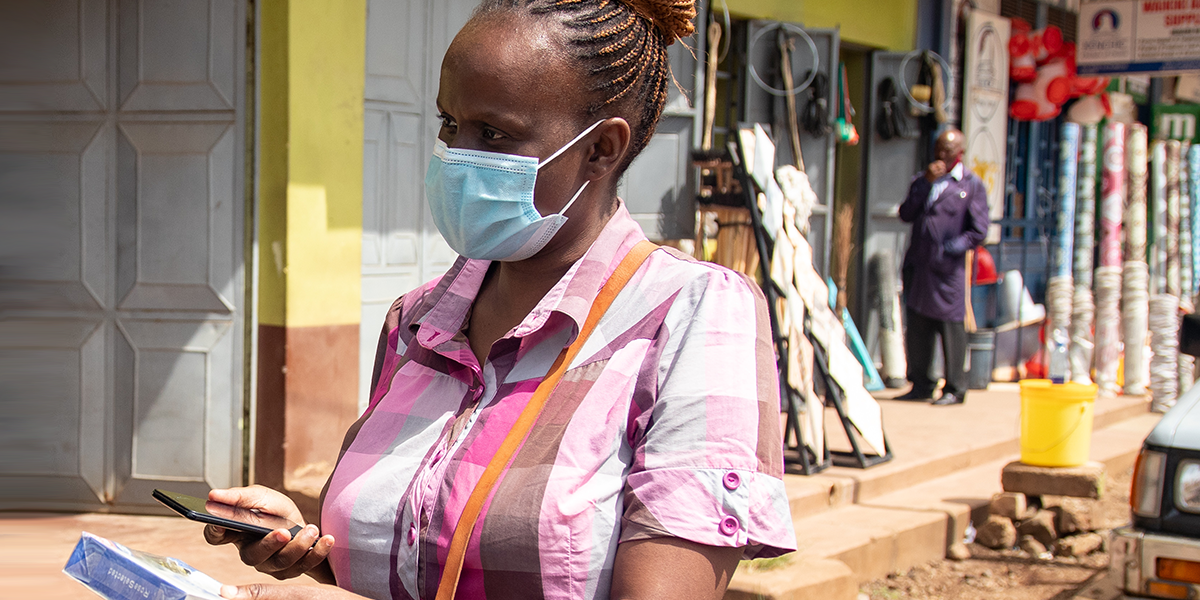South Asia led the global trend, while the gap in mobile ownership persists
17 JUNE 2021, London: A record number of women in South Asia now use mobile internet services, helping shrink the gender gap to 15% from 19% last year in low- and middle-income countries despite the onset of COVID-19, according to the fourth annual GSMA Mobile Gender Gap Report published today.
The gains in South Asia, which had the most significant gender gap in 2019 with women 50% less likely than men to use mobile internet, masked the stagnation in other regions such as Sub-Saharan Africa. Women in both regions now face a similar gender gap in mobile internet use – 37% in Sub-Saharan Africa and 36% in South Asia.
The GSMA report showed an estimated 112 million more women started using mobile internet last year across low- and middle-income countries. Nevertheless, 234 million fewer women than men access mobile internet. Moreover, the underlying gender gap in mobile ownership persists and is proving difficult to close.
Affordability, lack of literacy and digital skills, and lower awareness of mobile internet are critical and common barriers for women. Structural inequalities in society and discriminative social norms also remain a challenge. Even when women have the same levels of education, income, literacy, and employment as men, they are still less likely to own a mobile phone or use mobile internet.
Women were more likely than men to access the internet exclusively via mobile in almost all markets surveyed. In Kenya, for example, 63% of male internet users said they only used the internet via a mobile device compared to 79% of females. This reliance by women on mobile demonstrates the disproportionate benefit of increasing their access.
“If women are to become equal citizens in a more digital, post-COVID world, closing the mobile gender gap has never been more critical,” said Mats Granryd, Director General, of the GSMA. “I urge policymakers, the private sector and the international community to take note of the important findings laid out in the Mobile Gender Gap Report because only concerted action and collaboration will enable women and their families to reap the full benefits of connectivity.”
The GSMA introduced the Connected Women Commitment Initiative in 2016 to catalyse action to close the mobile gender gap. Mobile operators continued to make commitments during 2020, with 40 mobile operators across Africa, Asia and Latin America making formal commitments to accelerate digital and financial inclusion for women since 2016. These operators have already reached more than 40 million additional women with mobile internet or mobile money services.
The GSMA’s Mobile Gender Gap Report 2021 is available at: https://www.gsma.com/r/gender-gap/
Further information on the Connected Women Commitment Initiative can be found at: https://www.gsma.com/solutions-and-impact/connectivity-for-good/mobile-for-development/connected-women/the-commitment/
-ENDS-
About GSMA
The GSMA represents the interests of mobile operators worldwide, uniting more than 750 operators with almost 400 companies in the broader mobile ecosystem, including handset and device makers, software companies, equipment providers and internet companies, as well as organisations in adjacent industry sectors. The GSMA also produces the industry-leading MWC events held annually in Barcelona, Africa, Los Angeles and Shanghai, as well as the Thrive Series of regional conferences. For more information, please visit the GSMA corporate website at www.gsma.com. Follow the GSMA on Twitter: @GSMA.
About GSMA Connected Women
GSMA’s Connected Women Programme works with mobile operators and their partners to address the barriers to women accessing and using mobile internet and mobile money services. Connected Women aims to reduce the gender gap in mobile internet and mobile money services and unlock significant commercial opportunities for the mobile industry and socio-economic benefits for women.
This report is the output of a project funded by the UK Foreign, Commonwealth & Development Office (FCDO), and the Swedish International Development Cooperation Agency (Sida). The views expressed are not necessarily those of either organisation.
For more information, please visit www.gsma.com/solutions-and-impact/connectivity-for-good/mobile-for-development/connected-women/
Media Contacts:
GSMA Press Office
[email protected]



